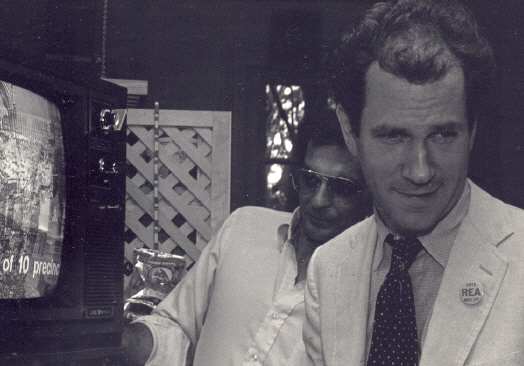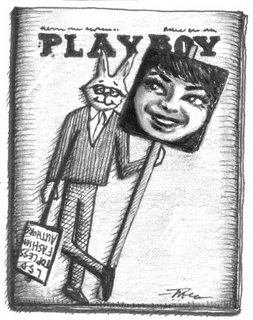Those supporting automatic restoration of rights for rapists and violent felons seldom if ever mention the victims. Rather, they say once the sentence is fully served, the “debt to society” is paid. This isn’t true.Wow! Suddenly the longtime Democrat – Never forget! I was Doug Wilder's brain – has become a demagogue who apologizes for Jim Crow Era tactics. Click here to read Goldman's opinion piece, “Demanding justice for violent crime victims isn’t racist.”
Could it simply be that Gov. McAuliffe doesn't take gadfly Goldman's phone calls? So the longtime backroom player of Democratic politics in Virginia has developed a nasty Wilder-like grudge for a fellow Democrat?
Is there any credible evidence that people who've been convicted of felonies tend to vote a particular way that works against the commonweal? As for me, I can't see how it has ever benefited society to create second-class citizens by disenfranchising/shunning them.
So when it comes to denying the right to vote to those who've paid their debt to society a few things should be noted: First, to pretend that the votes of people who've been convicted of violent crimes pollutes the product of elections is poppycock. Secondly, I'm suggesting that Virginians who denied the rights of citizenship to slaves had plenty in common with the Virginians who then, after the Civil War, locked up the freed slaves and put them on chain gangs.
The establishment in the nineteenth century didn't want black slaves or black convicts to have a chance to influence politics. Today some members of the Republican Party's establishment like to scheme ways to do the same for minorities, in general. So denying the vote to convicted felons has always been much more about controlling the outcome of elections than trying to do right by the victims of crimes, violent or otherwise.
To demagogue this issue, by taking up arguments warmed over from Jim Crow days, might be expected from mean-spirited throwbacks. Whether we see such power-hungry hard-asses as racists, or not, the last thing they want is a fair election that will gather the will of the people – all the people. So continuing to disenfranchise those who've served their time dovetails smoothly with the other measures being promoted by rightwingers to prevent certain people from voting.
However, for a lawyer and self-styled political operator who incessantly promotes himself as a friend to fairness in racial matters to now turn a blind eye on the shameful history of how disenfranchisement has been used as a political tool in this commonwealth is curious. For him to pretend his chief concern is for the victims of violent crimes is disingenuous.
Then again, speaking of being disingenuous, I can remember Paul Goldman attacking Mayor Dwight Jones with zeal in 2008, when Goldman was running for mayor against Jones. Of course, that was before Goldman dropped out of the race and endorsed Jones. Since then, Goldman has seen fit to trash Mayor Jones whenever the mood strikes.











